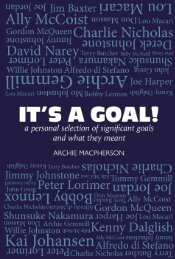Luath Scots Language Learner sampler
This new edition of the Luath Scots Language Learner featuring updated information is suitable as an introductory course or for those interested in reacquainting themselves with the language of childhood and grandparents. There are dictionaries and grammar books but this is the first-ever language course. The book assumes no prior knowledge on the reader's part. Starting from the most basic vocabulary and constructions, the reader is guided step-by-step through Scots vocabulary and the subtleties of grammar and idiom that distinguish Scots from English. An accompanying audio recording conveys the authentic pronunciation, especially important to readers from outside Scotland. The audio recording, which accompanies the Luath Scots Language Learner book, conveys the authentic pronunciation, especially important to readers from outside Scotland. It is suitable as an introductory course or for those interested in reacquainting themselves with the language of childhood and grandparents. There are dictionaries and grammar books but this is the first-ever language course. The book assumes no prior knowledge on the reader's part. Starting from the most basic vocabulary and constructions, the reader is guided step-by-step through Scots vocabulary and the subtleties of grammar and idiom that distinguish Scots from English.
This new edition of the Luath Scots Language Learner featuring updated information is suitable as an introductory course or for those interested in reacquainting themselves with the language of childhood and grandparents. There are dictionaries and grammar books but this is the first-ever language course. The book assumes no prior knowledge on the reader's part. Starting from the most basic vocabulary and constructions, the reader is guided step-by-step through Scots vocabulary and the subtleties of grammar and idiom that distinguish Scots from English. An accompanying audio recording conveys the authentic pronunciation, especially important to readers from outside Scotland.
The audio recording, which accompanies the Luath Scots Language Learner book, conveys the authentic pronunciation, especially important to readers from outside Scotland. It is suitable as an introductory course or for those interested in reacquainting themselves with the language of childhood and grandparents. There are dictionaries and grammar books but this is the first-ever language course. The book assumes no prior knowledge on the reader's part. Starting from the most basic vocabulary and constructions, the reader is guided step-by-step through Scots vocabulary and the subtleties of grammar and idiom that distinguish Scots from English.
- No tags were found...
You also want an ePaper? Increase the reach of your titles
YUMPU automatically turns print PDFs into web optimized ePapers that Google loves.
INTRODUCTION<br />
! in <strong>Scots</strong>, ch occurring in the middle or at the end of a word is<br />
generally pronounced as in the name of the composer, Bach<br />
(but see immediately below).<br />
! at the beginning of a word, ch has the same sound as in the<br />
English word ‘cheese’. Where this sound occurs later in a<br />
word, it is spelt tch as in, for example, fleetch.<br />
! th in <strong>Scots</strong> has the same two pronunciations as in English. One<br />
is as in ‘the’, ‘that’ or ‘breathe’; the other is as in ‘thank’,<br />
‘thin’, ‘three’ or ‘teeth’.<br />
! wh is pronounced hw-, not w- as in English: for instance,<br />
<strong>Scots</strong>-speakers make a clear distinction between the respective<br />
pronunciations of wit and whit. In the North East, wh is<br />
always pronounced f- in the interrogatives wha, whas, whan,<br />
whaur and whit. Some North East speakers also employ this<br />
pronunciation in a range of other words, such as white<br />
or<br />
whaul (‘whale’).<br />
! in some dialects north of the river Tay, the k in the initial kn<br />
is pronounced rather than silent in a few words not shared<br />
with English, such as tae knipe, ‘to go hurriedly’.<br />
! ui varies according to dialect:<br />
(i)<br />
(ii)<br />
(iii)<br />
(iv)<br />
in some conservative dialects the pronunciation is similar to<br />
the vowel of French peu or German schön;<br />
in North and East Fife, the pronunciation is like the a in<br />
Scottish Standard English ‘late’ or ‘blade’;<br />
in many other dialects the pronunciation in some words is like<br />
i in Scottish Standard English ‘bit’, so that buit and bit<br />
are<br />
pronounced identically;<br />
in northern dialects the pronunciation is the same as ee (‘eye’),<br />
except after c or g (e.g in cuit or guid) when the pronunciation<br />
is the same as wee (‘little’), but if it is followed by a k (e.g in<br />
buik or cuik) then it is pronounced as a short oo.<br />
NP


















